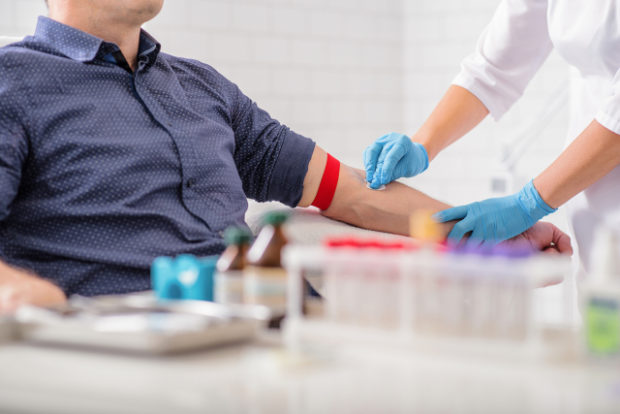World Blood Donor Day 2018: How giving blood can save lives

World Blood Donor Day on June 14 could be a good time to find out if you are a suitable blood donor. Image: YakobchukOlena / IStock.com
Thursday June 14, is World Blood Donor Day 2018, organized by the World Health Organization for countries around the world to celebrate and thank voluntary, unpaid blood donors for their life-saving help.
The day also helps raise awareness of the importance of regular blood donations for those in need. Here we round up some facts about blood donation, and why it is important to help if you are a suitable donor:
Every few seconds, someone somewhere in the world needs blood. Blood transfusions and blood products help save millions of lives every year, and can help patients suffering from life-threatening conditions live longer and with a higher quality of life.
Blood transfusion is needed for women with complications of pregnancy, such as ectopic pregnancies and hemorrhage before, during or after childbirth, children with severe anaemia, often a result of malaria or malnutrition, people with severe trauma following manmade and natural disasters, cancer patients, and for regular transfusions for people with conditions such as thalassemia and sickle cell disease. Blood is also used to make products such as clotting factors for people with hemophilia.
As blood can be stored for only a limited time before use, regular blood donations from healthy people are needed to ensure that safe blood is always available.
Article continues after this advertisementA decision to donate your blood can save a life, or even several if your blood is separated into its components — red cells, platelets and plasma — which can be used individually for patients with specific conditions.
Article continues after this advertisementThere are three types of blood donors, voluntary unpaid, paid, and family/replacement.
A regular and sufficient supply of blood can only be assured through donations from regular, voluntary, unpaid blood donors. They are the safest group of donors because the prevalence of bloodborne infections is lowest among them.
Donated blood should always be screened for HIV, hepatitis B, hepatitis C, and syphilis before transfusion. However, 35 countries are not able to screen all donated blood for one or more of these infections and testing is not reliable in many countries.
If you are interested in donating blood there are restrictions on who is a suitable donor, but you can find out more information from the blood donation organization in your country, or by visiting your healthcare provider. NVG
RELATED STORIES:
App for finding blood donors wins top prize at Smart 13th SWEEP Awards